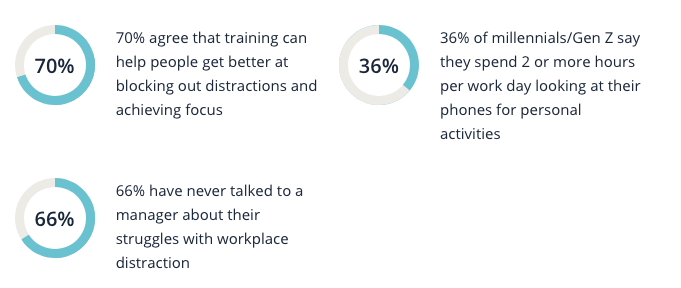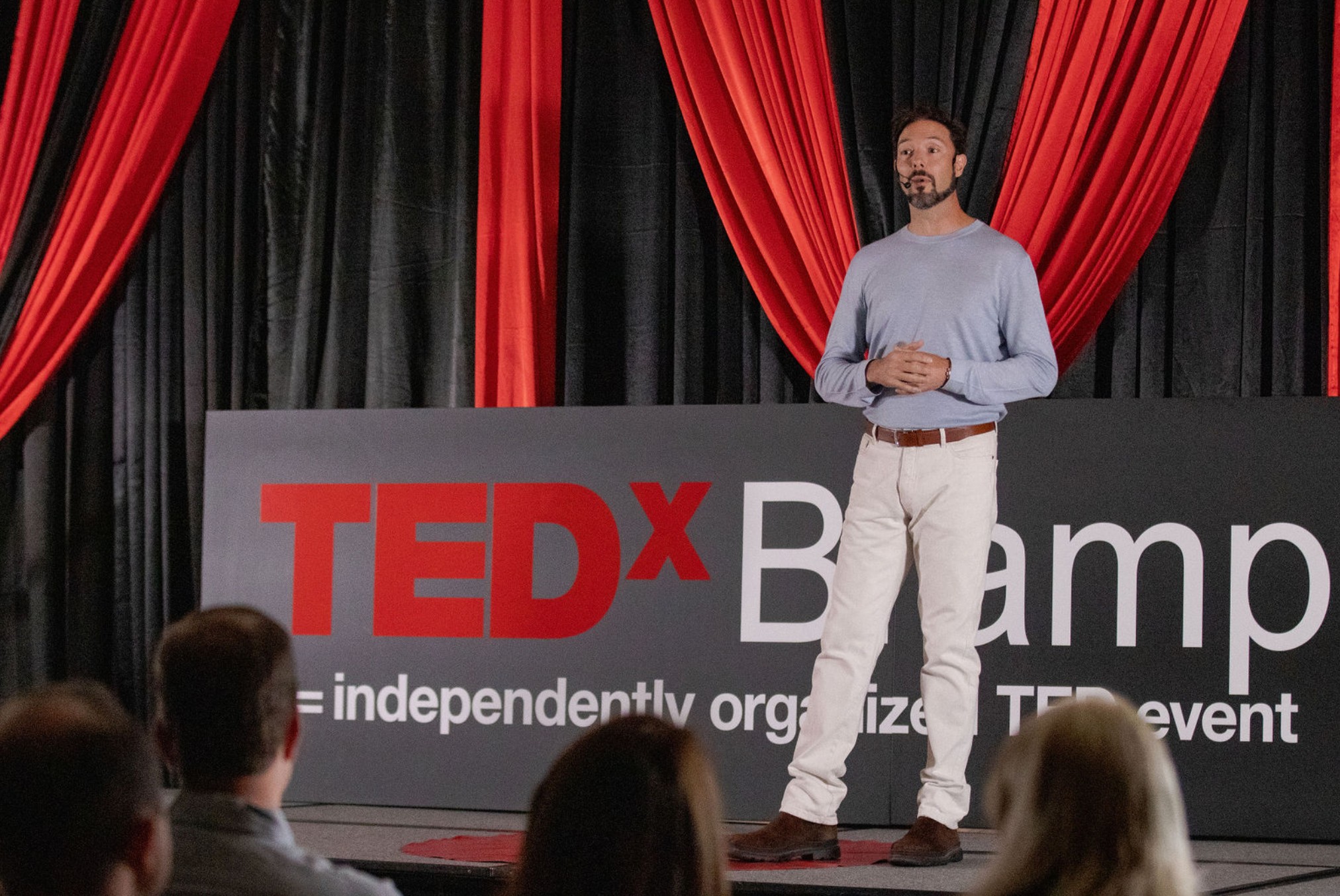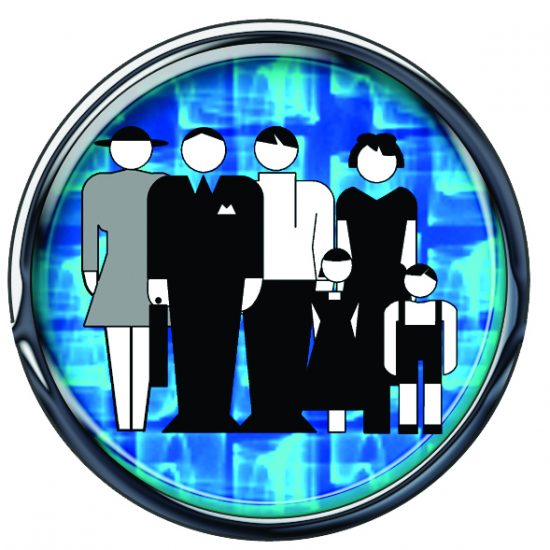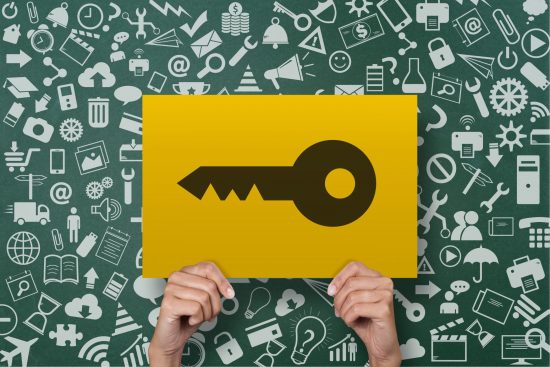Our world is jam-packed with distractions, and useless things that take up our time. Television, our phones, video games, and social media just to name a few. All of those things often just serve as potential sidetracks: things which break our focus and productivity. These distractions are fun and have their place; however, we have to accept that they are highly effective at distracting us from being our most productive self. Isn’t that the whole point of cliffhanger TV episodes and new levels in video games? All of these things are designed to keep our attention on them. But at what cost?
According to Udemy’s 2018 Workplace Distraction Report:

There is a time and a place for those things but, due to their addictive qualities, many of us indulge in them too often and for too long.
The best work can only be done when there are no distractions.
It is delusional to think that we can multitask: working while checking our phone, texting and driving, and talking on the phone while watching a movie. To do two things at once is to diminish the quality of both. We are significantly more productive and happy when we are disciplined and focused on a single task.
Discipline is, of course, a cornerstone of productivity. It is almost impossible to get anything done without it. Discipline is hard to cultivate, but once you have it, you can apply it in so many areas. Discipline is akin to an ever-changing scaffolding that can reshape to whatever it is applied to. Discipline shapes and focuses your work. If you have the same person do the same project twice, once with discipline and focus and once without, obviously they will do a better job when they were disciplined.
Discipline means excluding distractions. This is not easy to do, but the quality of work that will emerge on the other side will ameliorate the strain effort that it required. Being disciplined in our work does not mean setting aside a block of time, and then banging ones head against the proverbial wall until one has achieved their desired result. It is highly recommended that we work smarter not harder.
With that being said, there is a lot working against us. Many a product in our modern world has been designed to break down your discipline. Don’t believe me? Just look at television. What does using it encourage? It encourages stagnation. Because the designers want you to be hooked: “I can’t get up because I have to see what happens next.” Instead of prompting us to move after a reasonable amount of time, television wants to keep us right were we are for as long as possible… even if that’s not healthy us.
It does not seem that they have our best interests in mind.
The point is that a lot of things are trying to get you to pay attention to them. We have to do exactly the opposite, and be disciplined with regards to how we work. But disciplined work starts with disciplined thinking. We must ensure that our work is uninterrupted and focused.
We have to recognize how many distractions surround us, and take the necessary measures to maintain our productivity. And be disciplined about our process.
So here are three immediate actions you can take to escape the distraction trap:
- Block schedule and tell others: You can batch your work into blocks of uninterrupted times this can help your focus, your sense of well-being, and productivity. For example, don’t check email through out the day. Only check it at 11am and 1pm. Let your team, customers, clients, etc. know that in order for you to do your best work, this is how you are going to handle email from now on. If it’s an emergency, they can call.
- Create a Digital Sunset: Thanks to the great work of Cal Newport in his digital minimalism, creating a “digital sunset” and possibly sunrise – imposing an artificial time frame when everything gets turned off will allow you to ween yourself off the addiction of hyper-distraction that manipulates our fear of being left out.
- 2 Min of Thoughtless Breathing: Focus is like a mental muscle. If you don’t work it out, it will stay weak. So here’s an easy work out to commit to. Take 2 minutes every morning before you do anything else to breathe thoughtlessly. Just set a timer and do nothing but sit, breathe, and focus solely on the breath by hearing the words “in” and “out” during your entire inhalation and exhalation. Ding!
If we do this, we are going to significantly increase our chances of better productivity and less distraction. When we are fully present we do better work. Anything we can do to facilitate that will likely lead to our work getting done faster and with greater quality, not to mention having an incredible effect on your well being!
Challenge: This challenge is broken up into two parts over two weeks. Part one should help you realize just how much time your spending on addictive electronic devices. Take a week and spend it as you normally would. At the end of the first and second weeks you should mark how long you spent on screens both daily and in totality. During both weeks set your phone to give you a screen time report, if it isn’t already. You will have to keep track of all screen time for this challenge period though. During the second week you need to reduce your screen time by half. Again both your daily and your total screen time. It is your choice how you spend the time your not on screens during the second week. I recommend that you spend this time investing in yourself. Workout, get good sleep, journal, take up meditation, play a favorite sport, get extra work done(none electronic), brainstorm, write, spend time with loved ones, or all of the above.
First cutting your screen time down by half will be hard, that is why I set this challenge for you. Second, This will help you realize that you have much more time to work with, in a sense. People often complain that they never have enough time. Thus, they tend to take it out of their sleep by going to sleep at later and later hours. Taking time out of screen time is something that a lot of people resist, but it allows you to get more done. It allows you to invest in your health and livelihood without compromising on your sleep.



